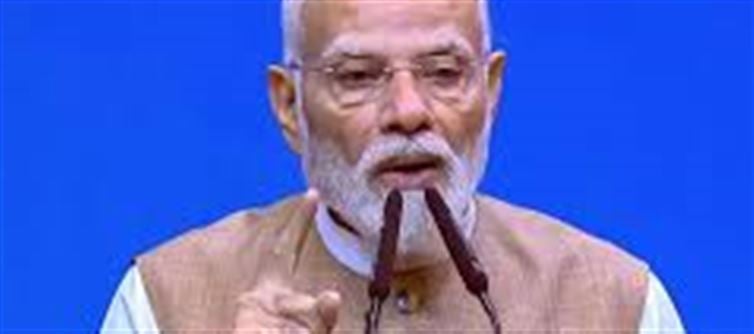
Coimbatore, Nov 19, 2025 — prime minister Narendra Modi is set to inaugurate the South india Natural Farming Summit in coimbatore today, underlining his government’s push for sustainable agriculture.
During the summit, the prime minister will also release the 21st instalment of the PM-KISAN scheme, amounting to ₹18,000 crore, which is earmarked to benefit nine crore (90 million) farmers across India.
Key Highlights of the Summit and Fund Release
· The Summit, organized by the Tamil Nadu Natural Farming Stakeholders Forum, will run from November 19 to 21 at the CODISSIA Trade Fair Complex in Coimbatore.
· Its purpose is to promote chemical-free, eco-friendly, and regenerative farming methods and to accelerate the shift toward natural farming as a climate-smart model.
· The event is expected to draw over 50,000 participants, including farmers, natural farming practitioners, scientists, farm-producer organisations, input suppliers, and stakeholders from tamil Nadu, Kerala, Andhra Pradesh, Karnataka, Puducherry, and Telangana.
· As part of the summit, the PM will honour farmers who have excelled in natural farming and present awards to the top performers.
· He will also engage in a dialogue with around 50 leading agricultural scientists and farmers, discussing the future of natural farming, market linkages for farmer-producer organizations, and innovations in sustainable agriculture.
· A major highlight: the fund release is for the PM-KISAN “farmers’ honour” fund (Kisan Samman Nidhi), under which eligible farmers receive ₹6,000 per year, paid in three instalments of ₹2,000.
Significance of the Move
1. Massive Financial Support
By releasing ₹18,000 crore in one go, the government is sending a strong signal about its continued financial commitment to farmers. This move comes through a well-established welfare scheme (PM-KISAN), making it more of a direct benefit than a loan or credit facility.
2. Push for Natural Farming
The timing of the fund release at an organic/natural farming summit suggests that the government is not only investing in farmer welfare but also shifting agricultural policy toward more sustainable methods. Natural farming reduces dependence on chemical fertilizers and pesticides and promotes long-term soil health.
3. Political Messaging
The scale of the fund and the high-profile nature of the event (with the PM personally inaugurating it) underline the political importance of agriculture in this phase. It could also be a message to rural voters that the government cares deeply about their income and future.
4. National Impact
With coverage across several South indian states, the summit is not just a regional event—it has national relevance. By supporting eco-friendly farming and injecting large funds into farmers’ accounts, the government is aiming to strengthen the rural economy and encourage sustainable practices at scale.
5. Institutional Collaboration
The summit will also foster market linkages: farmer-producers, input suppliers, and organic product marketers will get to meet and potentially collaborate. This could help farmers not just grow more sustainably, but also sell better.
Challenges and Questions
· Implementation Risk: While the fund is large, ensuring that it reaches all 9 crore farmers effectively (without leakages) will be a major task.
· Natural Farming Adoption: Transitioning to organic or natural farming isn’t easy — it requires training, change in practices, and possibly short-term yield dip.
· Sustainability: Whether this funding model can sustain long-term natural farming or whether it’s a one-time political push remains to be seen.
· Monitoring and Outcomes: Measuring success (in terms of how many farmers adopt natural farming, increase in income, environmental benefits) will be critical to justify such a massive investment.
Disclaimer:
The views and opinions expressed in this article are those of the author and do not necessarily reflect the official policy or position of any agency, organization, employer, or company. All information provided is for general informational purposes only. While every effort has been made to ensure accuracy, we make no representations or warranties of any kind, express or implied, about the completeness, reliability, or suitability of the information contained herein. Readers are advised to verify facts and seek professional advice where necessary. Any reliance placed on such information is strictly at the reader’s own risk..jpg)




 click and follow Indiaherald WhatsApp channel
click and follow Indiaherald WhatsApp channel